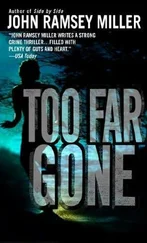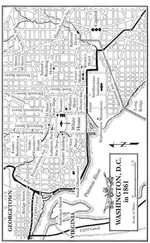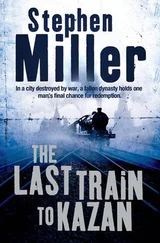John Miller - The Last Family
Здесь есть возможность читать онлайн «John Miller - The Last Family» весь текст электронной книги совершенно бесплатно (целиком полную версию без сокращений). В некоторых случаях можно слушать аудио, скачать через торрент в формате fb2 и присутствует краткое содержание. Жанр: Триллер, на английском языке. Описание произведения, (предисловие) а так же отзывы посетителей доступны на портале библиотеки ЛибКат.
- Название:The Last Family
- Автор:
- Жанр:
- Год:неизвестен
- ISBN:нет данных
- Рейтинг книги:4 / 5. Голосов: 1
-
Избранное:Добавить в избранное
- Отзывы:
-
Ваша оценка:
- 80
- 1
- 2
- 3
- 4
- 5
The Last Family: краткое содержание, описание и аннотация
Предлагаем к чтению аннотацию, описание, краткое содержание или предисловие (зависит от того, что написал сам автор книги «The Last Family»). Если вы не нашли необходимую информацию о книге — напишите в комментариях, мы постараемся отыскать её.
The Last Family — читать онлайн бесплатно полную книгу (весь текст) целиком
Ниже представлен текст книги, разбитый по страницам. Система сохранения места последней прочитанной страницы, позволяет с удобством читать онлайн бесплатно книгу «The Last Family», без необходимости каждый раз заново искать на чём Вы остановились. Поставьте закладку, и сможете в любой момент перейти на страницу, на которой закончили чтение.
Интервал:
Закладка:
“Too far to walk.”
“So when you pullin’ out?” The old man cocked his eyes up into Paul’s and frowned.
“Because I cut that beard off? You think I’m leaving because I shaved?”
“Well, ain’t you?”
“Couple of hours.”
“Knew them fellows showing up was bad news. It’s that guy you warned me might come looking for you, ain’t it? He’s up to somethin’?”
Paul took another swallow of coffee and nodded. “Killed eight women and children. The men who were in here-it was their families. Plus Rainey Lee’s two kids and wife, too.”
“Someone thinks you can catch him? Probably right.”
“Fact is I don’t think I can. But I have to try. He’s gonna go for Laura and the kids.”
“I see. Then there ain’t nothin’ else to say.”
“I wanted to say-”
“Listen, Pauly. Don’t get all teary-eyed like your mama used to. I’ll watch your place. You go on down there and take care of your business without a worry. Not that you ever did much worryin’ on my account. Old man with no one to leave the enterprise to. Go on. But I want your word that when that rat bastard is cold, you’ll come home and bring those kids for a visit. Might be one of them might want to run this place. Never know.”
“Never know.” Paul smiled. “I don’t imagine they want anything to do with me.”
There was another period when the two men were lost in their individual thoughts. Then Aaron stood up. “I want you to take something with you.” He started out into the store, came back five minutes later with a narrow walnut box about three feet long and a small cardboard one. He placed them on the table.
The old man removed the masking tape to free the flaps. He opened the cardboard box and pulled out a black leather shoulder-holster rig. The holster and the belting were hand-tooled in ivy leaves. Paul stared at it without comment. The gun was a Colt Combat Commander with stag grips.
“Remember this?” Aaron asked.
“Yes. I wasn’t sure what happened to it.”
“DEA sent it after you got here. I didn’t know if you’d ever want it back.”
“Thank you.”
“For what?”
“For not selling it.” He stared at the old man for a few seconds before his mouth turned up at the corners.
“Think I wasn’t tempted. Rig like this is worth six or seven hundred to the right fool.”
Paul picked up the weapon and looked at it. He dropped the magazine and inspected the chamber.
“It’s clean!” the old man said defensively.
Aaron turned his attention to the wooden box. He removed a nail from an ancient hasp and slid the top back, revealing a burgundy velvet-lined interior. He lifted a long black cane from inside and handed it to Paul.
“I remember this. Haven’t seen it since I was a kid.”
Paul couldn’t believe the heft of it. The hand grip was L-shaped and made of hand-carved ivory. The base of the cane was black and shone like dark glass all the way to the fancy filigree sterling tip.
“Take it with you,” Aaron said.
“It’s even more magnificent than I remembered,” Paul said. “Must weigh ten pounds. You reckon I’m that cripple, do you?”
“It’s weighty for a reason, and you don’t have to be cripple to need it. Look at the tip.”
Paul admired the cane. The handle told the story, in bas relief, of a gunfight, with one man standing tall and the other falling wounded. Paul flipped the cane and looked at the tip, where carved silver circled a black hole.
Aaron took the cane from Paul and twisted the handle. It opened, exposing a breech. He dropped in a brass shell and closed the breech. Then he raised the cane and pointed at a large wooden beam, and there was a deafening explosion. Paul stood and put his finger on the new hole in the wood.
“This old cane has an interesting history,” Aaron said. “Can’t recall exactly what it was, but it had to do with a gambler. Made by a famous gunsmith from a design the gambler worked out in a dream or some such. Had the handle carved in Frisco by a Chinese artist in 1880. Rod is ebony from Africa, covers a rifle barrel. Silver tip’s from Mexican mines. I traded some stuff for this cane fifty years ago. In time of dire straits it’ll give you the answer to one final prayer.”
“I never knew it fired.”
“No reason to tell you before. Forty-four forties are expensive rounds, so don’t waste ’em. Open the breech and load it. A half twist back on the handle sets the pin and drops the trigger. I’m giving you six shells, and I just hope it don’t blow up on you.”
“I’ll be careful.”
“Don’t shoot your fool foot off.”
“I won’t keep it loaded.”
“Of course you’ll keep it loaded! What the hell good is it gonna do unloaded? Just like your mama. Sayin’ fool stuff.”
Paul shook his head. “Thanks.”
“Worth a fortune, too, I’d wager. I’m just loaning it to you. Give me your word you’ll keep it with you. And that you’ll bring it back to me… personally.”
Paul stood and the two men embraced. “I’ll be back, Uncle Aaron.”
“With the kids? Bring ’em to see me before I die.”
“We’ll see.”
The old man wiped his weathered eyes on the back of his sleeve. “I ever tell you how much you’ve meant to me all these years?”
“No, Uncle Aaron, you never have.”
The old man slapped his nephew’s shoulder. “And I ain’t about to start now. Trim down that fool mustache, you look like a cattle rustler.”
Paul finished his coffee with a swallow and stood. He leaned the cane against the wall. “I’ll pick this up on the way out.”
“Suit yourself,” Aaron said, waving his nephew away with a flick of his ancient wrist. “You always do.”
6
Laura Masterson stood at the far side of the ballroom where couples had once turned in elegant circles beneath a crystal chandelier imported from France. In this very room smooth-faced boys in dress gray bowed to giggling girls in sweeping hoop skirts, and string quartets played sweet waltzes. Meanwhile a nation divided against itself prepared to trade minie balls and cannon shot. This room had served as a hospice where yellow-fever victims had lain on mats, ministered to by a parish priest and women in white linen. Laura was surrounded by old ghosts, but she stared straight through them as she critiqued her latest painting.
She was leaning against the jamb of the tall pocket doors that were open to the home’s wide hallway, called a gallery. From fifty feet away the face on the canvas looked as detailed as a Vermeer, while up close it was all tiny swirls, short slashes, and dots of oil. The face in the painting was partially destroyed, or partially incomplete, the right eye missing, plucked from the angry socket by an all but angelic vulture. She sipped her coffee and contemplated the image. In her mind the face, like all of her images, was a thing of beauty, but as one critic had said, her figures were “disturbing visages that haunt the viewer while seducing them.”
“This one won’t be seducing anyone,” she said to the coffee. She was far from pleased with the image, but that was true of all of her paintings. If she was pleased, she might lose the edge, whatever that was. She had no idea where her gift-though she would never call it that-came from. She had never shown any more talent at art than friends who were involved in painting. She had come to it late, but it had consumed her with a passion that she had never dreamed possible. The brushes seemed to know what they were after. There was a surety of line and, as her mind commanded, her hand followed. Before she had discovered these images trapped inside her mind, she had been another person altogether. She had been called the Anne Rice of oils, and it had less to do with their shared hometown than with their perspective.
Читать дальшеИнтервал:
Закладка:
Похожие книги на «The Last Family»
Представляем Вашему вниманию похожие книги на «The Last Family» списком для выбора. Мы отобрали схожую по названию и смыслу литературу в надежде предоставить читателям больше вариантов отыскать новые, интересные, ещё непрочитанные произведения.
Обсуждение, отзывы о книге «The Last Family» и просто собственные мнения читателей. Оставьте ваши комментарии, напишите, что Вы думаете о произведении, его смысле или главных героях. Укажите что конкретно понравилось, а что нет, и почему Вы так считаете.












